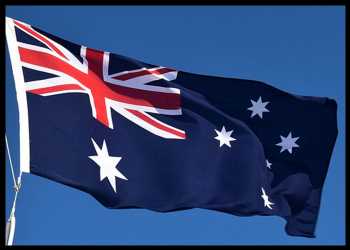
Australia Retail Sales Fall For Second Month
Australia’s retail sales declined for a second straight month in July as some regions went into lockdown following new cases of coronavirus infections, preliminary data showed Friday.
Retail sales fell a seasonally adjusted 2.7 percent from June, when they dropped 1.8 percent, the Australian Bureau of Statistics said. Economists had forecast a 2.3 percent slump.
The monthly decline was the worst since December 2020. In May, sales grew 0.4 percent.
Compared to the same month last year, retail sales dropped 3.1 percent in July after a 2.9 percent gain in June. The latest annual fall was the first since April 2020.
“Lockdowns and stay-at-home orders in many parts of Australia continued to impact retail trade in July, with many non-essential retail businesses closing their physical stores,” Ben James, director of quarterly economy wide surveys at ABS, said.
“In particular, the first full month of lockdown in New South Wales, following the Delta outbreak in June, saw retail turnover in the state fall 8.9 per cent.”
That was the largest fall of any state and territory since August 2020, the ABS official added.
South Australia and Queensland logged declines of 3.3 percent and 0.9 percent, respectively.
Victoria registered the strongest gain of 1.3 percent as some restrictions from the prior month were eased further in early July. That said, sales remained subdued due to a twelve-day lockdown from mid- to late July, the ABS said.
Among the main industries, the cafes, restaurants and takeaway food services logged a 12.3 percent fall in sales. The clothing, footwear and personal accessory retailing registered a 15.4 percent slump and department stores reported an 11.4 percent drop in sales. These industries were severely hurt by physical store closures.
Meanwhile, food retailing logged the biggest gain of 2.3 percent amid stay-at-home orders due to coronavirus infections. Other retailing grew 0.6 percent, partly driven by additional online sales.
Sales will fall further before they rebound with lockdowns spreading and intensifying in August, Capital Economics economist Ben Udy said.
Given the steep fall in sales in the cafes and restaurants, the economist expects a sharp deterioration in the services consumption in the third quarter.
For the third quarter, Capital Economics estimates a 4.5 percent slump in consumption. However, the firm expects consumption to rise 4.5 percent in the fourth quarter as restrictions would be eased once 70 percent of the eligible population is vaccinated, enabling non-essential businesses to return.
Source: Read Full Article